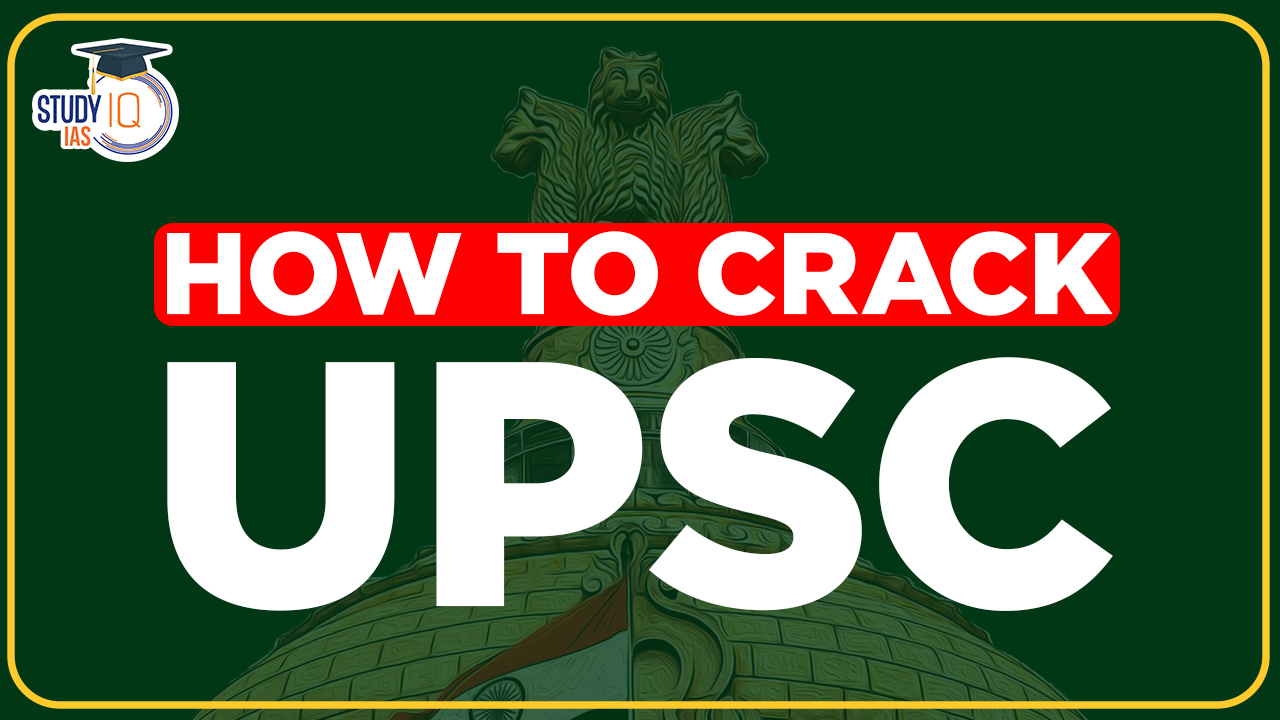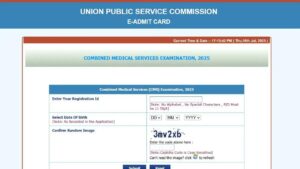Table of Contents
Union Public Service Commission is going to conduct a Civil service exam for one of the most prestigious and challenging exams in India. It opens the gateway to elite positions like the Indian Administrative Service (IAS) and the Indian Police Service (IPS). To crack the UPSC CSE exam, one should have a well-planned strategy, persistent effort, and full dedication. Check here: How to Prepare for UPSC Exam 2025 and get IAS Preparation Tips in this article.
How to Crack UPSC Civil Service 2025?
A well-structured study plan is very important for covering the vast syllabus in a systematic order. Here is how you can start:
- Divide the syllabus into different sections.
- Set goals and deadlines for each section.
- Allocate time for regular revisions.
- breaks to avoid burnout and incorporate chillness in mind
| Step | Action | Description |
|---|---|---|
| 1 | Start with NCERT | Begin your preparation with NCERT books for subjects like History, Geography, Economics, and Polity. These books offer clear and concise explanations of basic concepts. |
| 2 | Focus on Current Affairs | Stay updated with current affairs by reading reputable newspapers daily, such as The Hindu or The Indian Express. Supplement your reading with current affairs magazines. |
| 3 | Choose the Right Optional Subject | Select an optional subject with your interests and strengths. Consider factors like availability of study material and overlap with General Studies. |
| 4 | Make Effective Notes | Create concise and effective notes using flow charts, diagrams, and bullet points to summarize important information. Organize your notes topic-wise for easy access. |
| 5 | Develop Answer Writing Skills | Practice answer writing regularly to improve articulation and clarity. Join a test series to receive feedback and focus on structuring your answers effectively. |
| 6 | Take Regular Mock Tests | Assess your preparation level and improve your time management skills by taking regular mock tests. Review your performance and work on weaknesses. |
| 7 | Revise Regularly | Allocate specific time slots in your study plan for regular revision of important topics. Multiple revisions definitely help you to score high marks |
| 8 | Stay Positive and Motivated | Maintain a positive mindset and stay motivated throughout your preparation journey. Surround yourself with supportive mentors. |
Also Check How to Start UPSC Preparation from Zero Level
Understand UPSC Syllabus and Exam Pattern
The first step for the preparation one should be understanding the UPSC Syllabus and Exam Pattern . The exam consists of three stages:
- Preliminary Examination (Objective)
- Main Examination (Descriptive)
- Personality Test (Interview)
Preliminary Examination comprises two papers:
- General Studies Paper I
- General Studies Paper II (CSAT)
The Main Examination includes nine papers:
- Essay
- General Studies I
- General Studies II
- General Studies III
- General Studies IV
- Optional Paper I
- Optional Paper II
- English Language (Qualifying)
- Indian Language (Qualifying)
Please go through the detailed syllabus for each stage to understand what needs to be covered.
Step-by-Step Plan to Prepare for UPSC
Understand the UPSC Exam
- Research: Familiarize yourself with the UPSC exam pattern, syllabus, and eligibility criteria.
- Study Previous Papers: Analyze previous years’ question papers to understand the exam format and the types of questions asked.
Set Clear Goals
- Define Your Objectives: Determine your ultimate goal, whether it’s becoming an IAS officer or joining another service.
- Set Milestones: Break down your preparation into smaller, manageable goals, such as completing syllabus sections or mastering specific topics.
Gather Study Materials at one place
- NCERT Books: Start with NCERT books for basic understanding and clarity in subjects like History, Geography, Economics, and Polity.
- Standard Reference Books: Acquire standard reference books recommended by toppers and experts for in-depth knowledge and understanding of subjects.
- Current Affairs Sources: Subscribe to newspapers like The Hindu or The Indian Express, and read current affairs magazines like Yojana and Kurukshetra.
Develop a Study Schedule
- Create a Timetable: Design a study timetable that suits your daily routine and allows ample time for each subject and revision.
- Balance Subjects: Allocate time for each subject based on its weightage and your proficiency level.
Focus on Fundamentals
- Master Basics: Start with fundamental concepts and build a strong foundation in each subject.
- NCERT Books: Begin your preparation with NCERT books to grasp basic concepts before moving on to advanced topics.
Stay Updated with Current Affairs
- Daily Reading: Develop a habit of reading newspapers and magazines daily to stay updated with current affairs.
- Note-Making: Make concise notes of important current affairs topics for quick revision.
Choose Right Optional Subject
- Evaluate Options: Research and evaluate optional subjects based on your interest, background, and availability of study material.
- Seek Guidance: Consult with mentors, seniors, or subject experts to choose the most suitable optional subject.
Practice Answer Writing
- Regular Practice: Dedicate time daily for answer writing practice to improve articulation and presentation skills.
- Mock Tests: Take regular mock tests to simulate exam conditions and enhance time management skills.
Revise Regularly
- Scheduled Revision: Allocate specific time slots in your timetable for regular revision of topics and subjects.
- Multiple Revisions: Ensure thorough revision of important topics multiple times before the exam to retain information effectively.
UPSC Exam Preparation Strategy Subject-Wise
Follow these subject-wise preparation tips to effectively cover each subject within a specific time frame.
| Subject | Steps |
|---|---|
| History |
|
| Economics |
|
| Geography |
|
| Indian Polity |
|
| Art and Culture |
|
| Science and Technology |
|
| Environment and Ecology |
|
Timetable for UPSC Preparation 2025
| Time | Monday to Friday | Saturday | Sunday |
|---|---|---|---|
| 6:00 AM – 7:00 AM | Wake up, morning routine, exercise | Same as weekdays | Same as weekdays |
| 7:00 AM – 8:30 AM | Current Affairs Revision | Mock Test | Current Affairs Revision, News Analysis |
| 8:30 AM – 10:30 AM | Study session 1 (History, Geography, Polity) | Mock Test Analysis | Review of Previous Week’s Study, Revision |
| 10:30 AM – 11:00 AM | Break and Refreshment | Break and Analysis | Lunch Break |
| 11:00 AM – 1:00 PM | Study session 2 (Economics, Science and Technology) | Revision of Weak Areas | Optional Subject Study, Practice Tests |
| 1:00 PM – 2:00 PM | Lunch and Break | Lunch Break | Lunch Break |
| 2:00 PM – 3:30 PM | Answer Writing Practice for Mains | Optional Subject Study or Practice Answer Writing | Optional Subject Study, Practice Tests |
| 3:30 PM – 4:00 PM | Break and Refreshment | Leisure Time or Relaxation | Leisure Time or Relaxation |
| 4:00 PM – 6:00 PM | Study session 3 (Art and Culture, Environment and Ecology) | Leisure Time or Relaxation | Optional Subject Study, Practice Tests |
| 6:00 PM – 7:30 PM | Optional Subject Study | Leisure Time or Relaxation | Leisure Time or Relaxation |
| 7:30 PM – 8:30 PM | Dinner Break and Relaxation | Leisure Time or Relaxation | Leisure Time or Relaxation |
| 8:30 PM – 10:30 PM | Revision and Self-assessment | Leisure Time or Relaxation | Leisure Time or Relaxation |
| 10:30 PM – 11:00 PM | Plan for the next day and set goals | Leisure Time or Relaxation | Leisure Time or Relaxation |
| 11:00 PM | Bedtime | Bedtime | Bedtime |


 UPSC CMS Admit Card 2025 Out: Download L...
UPSC CMS Admit Card 2025 Out: Download L...
 UPSC Study Material for Prelims & Ma...
UPSC Study Material for Prelims & Ma...
 NATO Countries List 2025, Members, Funct...
NATO Countries List 2025, Members, Funct...





















